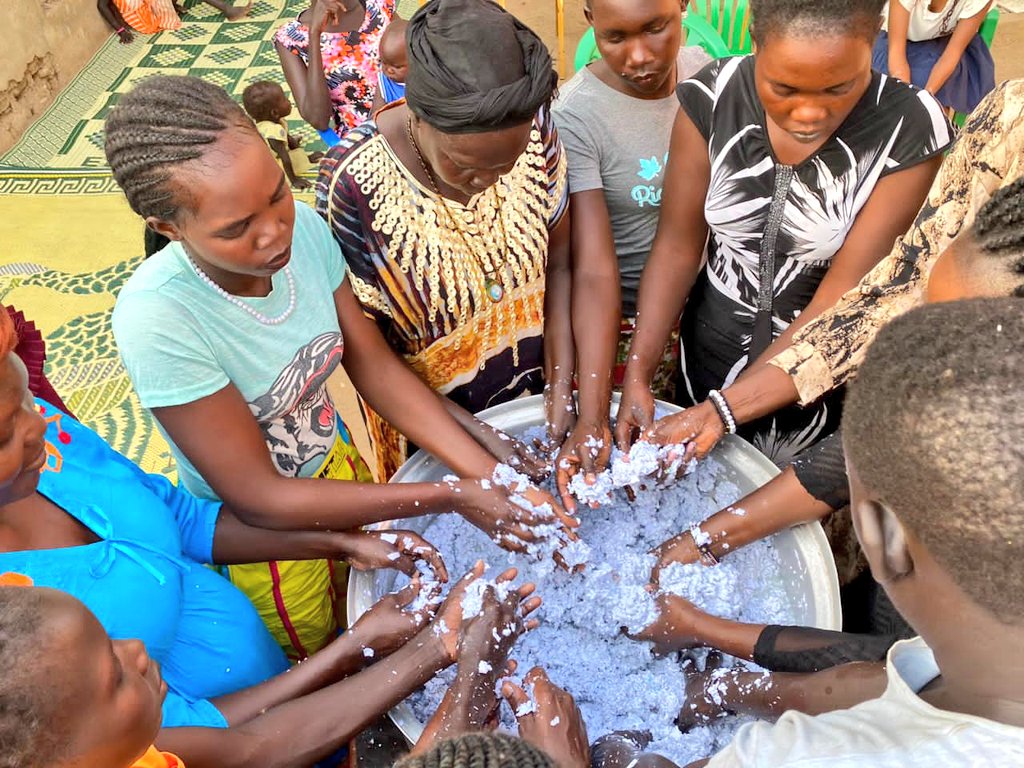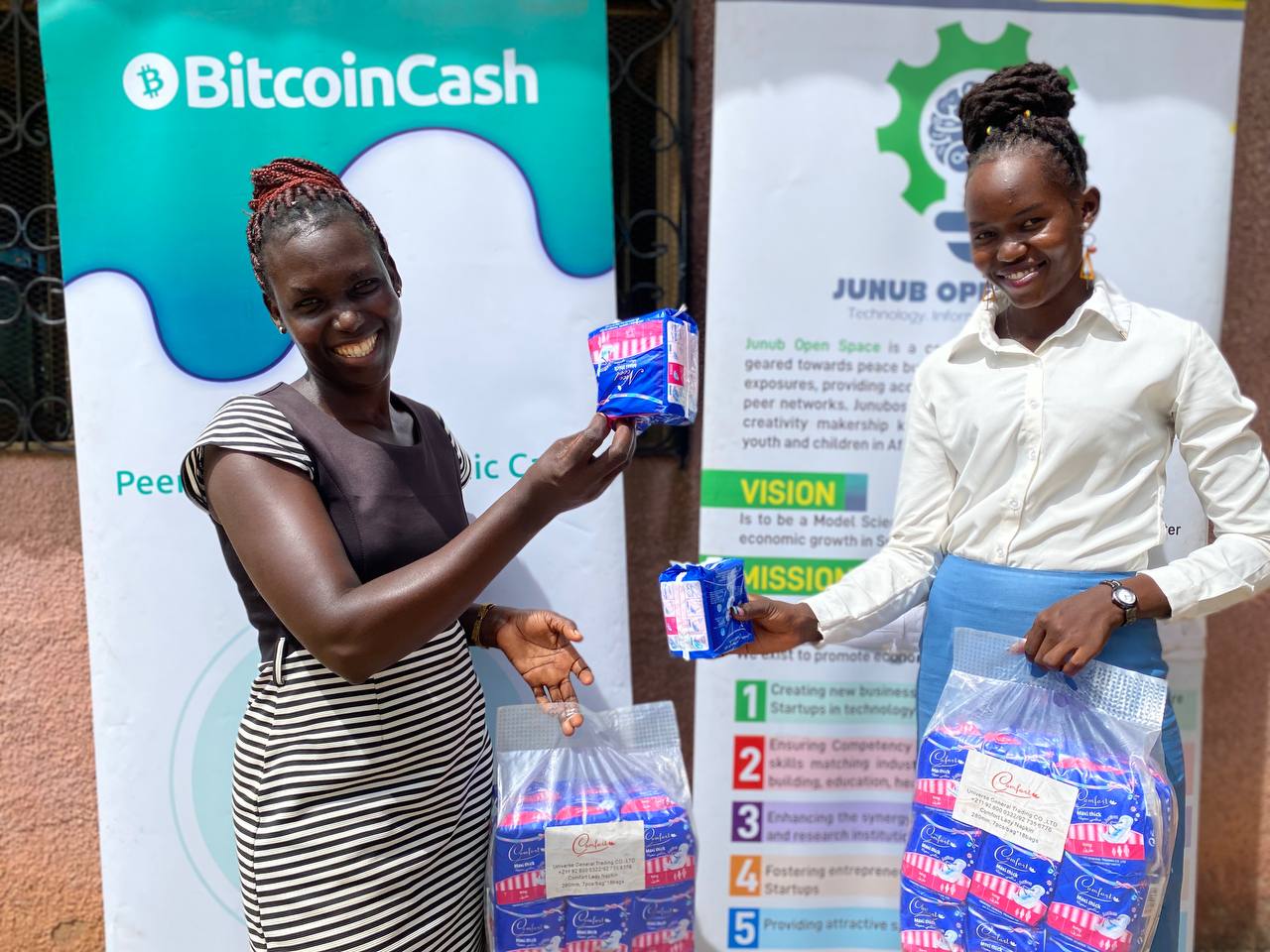Building Resilience From Digital Wallets to Peace at Home
In Juba, South Sudan, Junub Open Space (JunubOS) doesn’t see technology as an abstract concept; they see it as a community tool for building resilience and peace. Since its founding in 2016, JunubOS has been committed to creating a platform that exposes youth to knowledge, enhances skills, and fosters peer networks to create resilient and self-reliant youth in Africa. They operate as a network of young South Sudanese entrepreneurs, makers, activists, and managers focused on new models of economic development and creating a resilient civil society.
Their mission is rooted in peacebuilding among youth and providing access to facilities that enhance skills. Their work spans several key areas, including Technology, Agriculture, Education, Entrepreneurship, Culture, and Peace. JunubOS’s latest exploration looks toward one of the most promising frontiers: blockchain technology as a framework for community support, value exchange, and economic empowerment.

From Crypto Charity to Community Viability
In a global conversation often dominated by speculation, JunubOS is deliberately shifting the narrative around cryptocurrency. Their workshops focus on exploring blockchain as social infrastructure rather than a financial gamble.
The sessions titled “Exploring Crypto: Unlocking Micro-Work & Earning Opportunities” introduce participants to secure and legitimate ways to access the global digital economy. This education is always balanced with an honest discussion about risk awareness and digital security. As a JunubOS facilitator explains, “Our aim is not to turn people into traders, but to help them see how blockchain tools can create new pathways for participation, income, and collaboration.”
The practical application of decentralized technology is best demonstrated by the eatBCH South Sudan initiative, a project proudly managed by JunubOS volunteers. This program has become a model for direct, transparent aid by transforming crypto donations directly into food purchases for vulnerable groups.
The project relies on Bitcoin Cash (BCH), which is valued for its low transaction fees, speed, and ease of use via a simple mobile phone wallet. This approach allows the organization to bypass high transaction costs and traditional financial intermediaries, ensuring maximum efficiency.
Through the dedication of the JunubOS team, eatBCH South Sudan has successfully fed thousands of vulnerable individuals, providing a rapid response to diverse emergencies, including:
- Flood Response: Swift assistance to communities affected by devastating floods in areas like Jongolei and Wau.
- Conflict Response: Immediate support for Internally Displaced Persons (IDPs) escaping conflict in regions like Tombura and Yei.
- Vulnerable Groups: Ongoing, consistent support to over 400 households in the Mahad IDP camp in Juba, along with supporting street children and the elderly.
The project’s use of a global funding platform like Flipstarter and public, real-time reporting via Twitter ensures unparalleled financial transparency and direct-to-beneficiary efficiency.
The ultimate vision extends far beyond simple aid. JunubOS is exploring how blockchain-based systems could underpin circular community economies—where value stays local, transactions are transparent, and participation is open to everyone.
This shift involves conceptualizing futures where:
- Farmers and small traders use stablecoins or local digital tokens to exchange goods fairly without depending on unstable cash systems.
- Youth freelancers in refugee and host communities receive direct payments without high transaction costs.
- Community cooperatives can trace and verify contributions for collective projects, using blockchain as a trust ledger rather than a gatekeeper.

Peace Through Practice: Salaam fi Bet
The goal of economic empowerment is intrinsically linked to peacebuilding, which is central to the identity of JunubOS. The Salaam fi Bet (Peace at Home) project directly addresses social cohesion and conflict resolution at the community level.
The initiative recognizes that national conflict often mirrors tensions at the community and household level. By providing a safe, educational space, the initiative focuses on:
- Dialogue and Reconciliation: Facilitating open discussions and workshops that address trauma and promote healing.
- Gender and Social Equity: Actively working to transform cultural patterns that fuel conflict and inequality, including promoting gender equality awareness.
- Practical Skills for Coexistence: Integrating peace education with practical livelihood skills, such as using agricultural training to teach harmony and co-existence.
The work of Junub Open Space demonstrates a powerful truth: in the most challenging environments, the most valuable assets are trust and knowledge. JunubOS is using its platforms to scale both, proving that innovation, resilience, and peace are practical outcomes of community-led action.